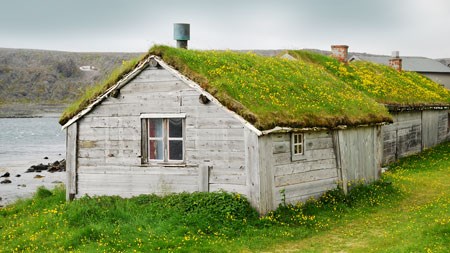With winter in full swing many households are using a lot more energy than usual and with many consumers still feeling the pinch in a recovering market; it would make sense to look at ways to save energy and its associated costs.
Adrian Goslett, CEO of RE/MAX of Southern Africa, says: “The easiest way to save on energy usage is essentially to conserve the electricity used in and around the home. Homeowners may need to make a small investment initially in improving the energy-efficiency of their home; however this will pay dividends and help them to save on costs in the long term.”
Insulation
Many areas in the home are being overlooked such as the sealing of window leaks and adding insulation to the ceilings, all of which could result in savings. This will preserve the electricity needed to warm the home as well as retain the heat. Given our South African climate anything more than ceiling insulation would be unnecessary, however it is vital that these areas are properly inspected and rectified if need be before considering other options.
Geysers
The geyser is probably the most energy-thirsty appliance in the home which accounts for about 40% of your electricity bill each month. Apart from turning it off when you are away from the home for a few days, you could have the thermostat properly automated. Since 2008 a few products have entered the South African market in order for consumers to keep digital control over their geyser. This allows the homeowner to have complete control over when it’s on and how hot it gets.
When needing hot water; consider using the shower or tap that is closest to the geyser. This will use less energy as the hot water will not have to travel through as much cold piping ultimately cooling it down – the more hot water needed, the more energy is used. Alternate methods of heating water can be explored such as the installation of solar paneling; again this may mean an initial outlay of funds but will save a lot of money over the long term.
Refrigerators
Homeowners should also check their refrigerators to make sure they are not too cold; ideally the temperature should range between three to five degrees Celsius, while your freezer should be around -17 degrees Celsius. The refrigerator generally works harder when it is full so make sure you throw away unnecessary items and defrost it regularly. Some modern fridges boast a holiday button, which can be used when you are away for long periods of time.
Household Appliances
Additional household appliances to inspect include washing machines, which should be set at 30 degrees. This could save as much as 40% of the energy used to wash your clothes. When it comes to drying those clothes, hanging them on a conventional washing line rather than using a tumble dryer will also save electricity for obvious reasons. Washing machines and dishwashers should only be used once they have a full load and kettles should have only the amount of water required per usage, as it is quicker and takes a lot less energy to heat up one cup of water than it does to heat up five.
Unplug unused appliances
No household appliances should be left on standby over night but rather turned off or unplugged completely - even though they are not in use they are still drawing power. Some machines on standby, such as the computer can use approximately 20% as much power as they do in full use. Unplugging appliances will also protect them from possible power surges.
Lighting
Many South African’s may have already changed the light bulbs in their houses to CFL light bulbs, if not then now is time to do it. Essentially CFL light bulbs are low energy blubs that do not get hot when used over long periods of time. They are especially effective in areas where the bulbs are kept on for more than three hours, like the patio and front door or garden area lights. When replacing CFL light bulbs it is important to dispose of the old ones properly as they do contain elements such as Mercury.
Other small but significant ways to save electricity is by putting on an extra layer of clothing before using a heater or opting for an electric blanket rather than a bedroom heater during these cold winter nights. “With the high cost of energy and depletion of resources globally, it is imperative to find ways to curb costs as well as reduce the carbon footprint that we inflict on the planet. By following these simple tips, homeowners will see the reduced cost benefits, while the environment will improve from the reduction in carbon emissions,” Goslett concludes.




